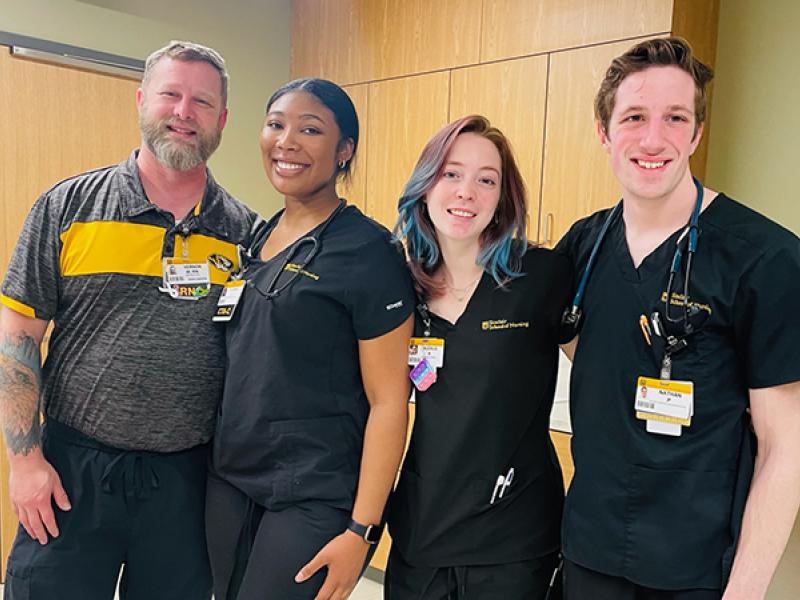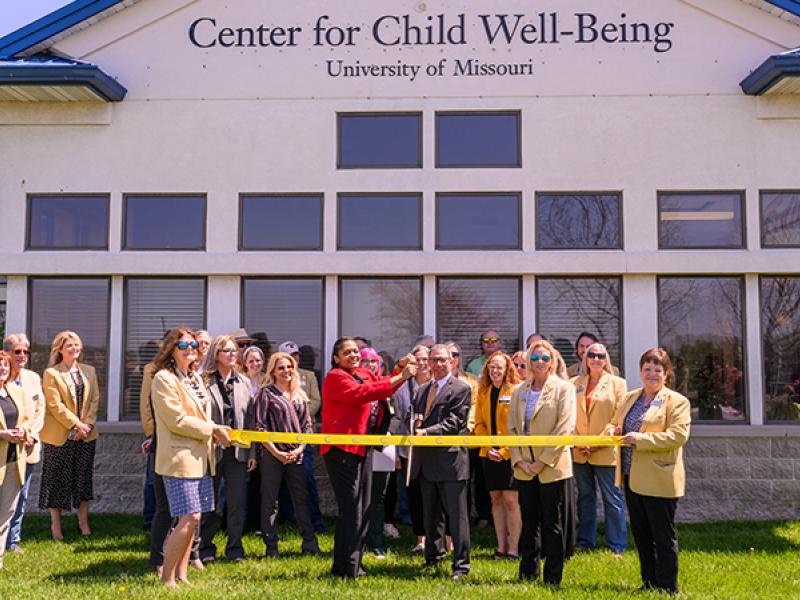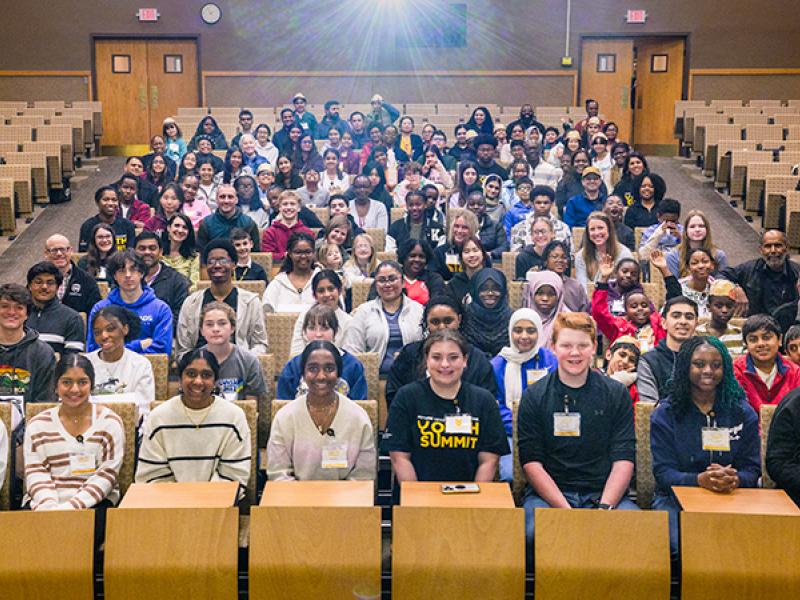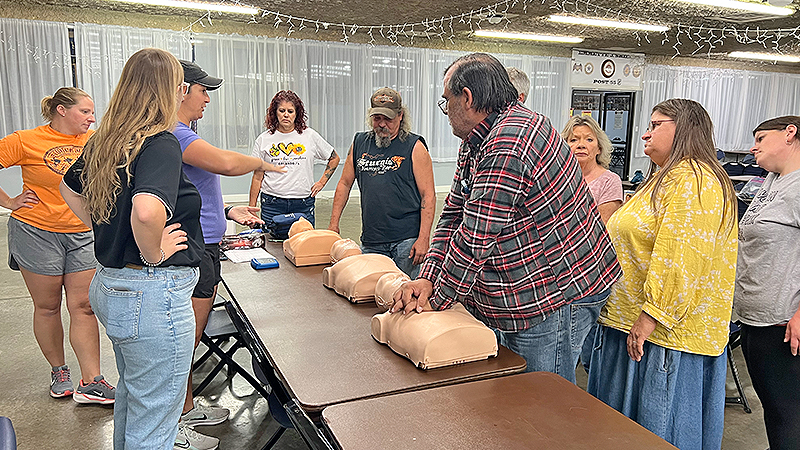
Celebrating their 30th anniversaries in 2025, the Mizzou School of Medicine’s Rural Scholars Program and Lester Bryant Scholars Pre-Admissions Program have helped address the growing shortage of primary health care physicians in rural Missouri.
A unique opportunity for third-year medical students is the Rural Clerkship Program, which offers clinical education in community-based training sites throughout the state. In correlation with Rural Clerkship, the Community Integration Program (CIP) was launched to help expose medical students to rural culture and health disparities through service learning.
As part of their CIP curriculum, medical students Jessalyn Hultz and John Williams partnered with the Hannibal Regional Healthcare System in Hannibal, Missouri. In 2024, local American Legion Post 55 experienced a medical incident where a member suffered a cardiac emergency. Fellow members on-hand administered CPR until paramedics arrived and transported the individual to Hannibal Regional Hospital, but unfortunately, he would later pass away.
After learning about the story, Hultz and Williams collaborated with American Legion Post 55 and developed a project titled, “Resource Initiative for Veterans in Rural Missouri” to increase CPR/AED education and training for residents.
Behind their previous involvement in CIP, the pair was able to quickly expand their project within the local community.
“Our welcome into Hannibal and the Regional Healthcare System included valuable meetings with community programs and potential partners,” said Hultz. “John took the lead in building strong relationships, including Allysa Starbuck, an American Heart Association instructor at Hannibal Regional, American Legion Post 55 members and other veterans in the area. Those connections became the foundation of our project and allowed us to create something that was truly needed in the community.”
With relationships and a project groundwork solidified, Hultz and Williams began offering firsthand CPR/AED information and training sessions at American Legion Post 55. The local reception was exceptional, providing a sense of excitement and encouragement for the Mizzou medical students.
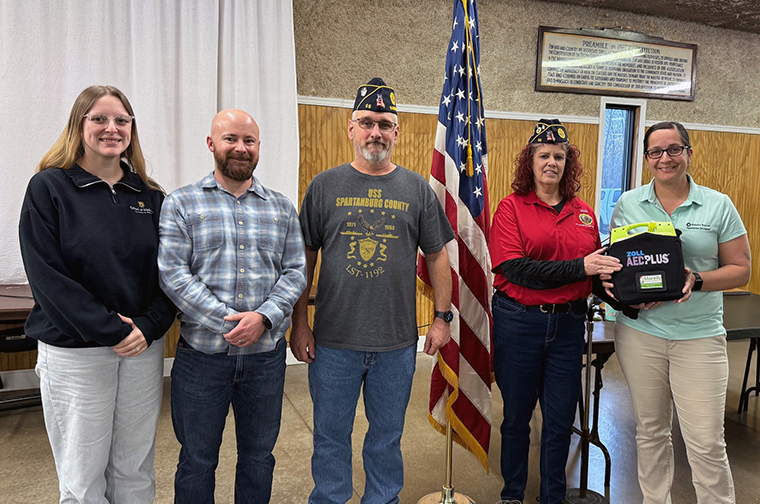
“One of the major positive outcomes is that we were able to get more people in the Hannibal community CPR/AED trained, as well as getting an AED placed at the Legion Hall so they could better respond to potential medical emergencies in the future,” said Williams. “The biggest change I noticed in the surrounding communities was that our project showed people what resources were available to them through the Hannibal Regional Healthcare System and the Marion County Ambulance District.”
Thanks to opportunities courtesy of CIP and the Rural Clerkship Program, Mizzou Rural Scholars have unique resources at their disposal to enhance their medical education. For Hultz, the real-life partnership in Hannibal reaffirmed her passion for public health and safety.
“As a native of Palmyra, Missouri, and growing up just outside of Hannibal, taking part in an initiative that directly impacted my own community exemplified how powerful preventative care and community engagement can be,” said Hultz. “It was a strong reminder that medicine goes beyond diagnosing and treating illness. It’s also about creating safer and healthier environments through proactive and collaborative care.”


